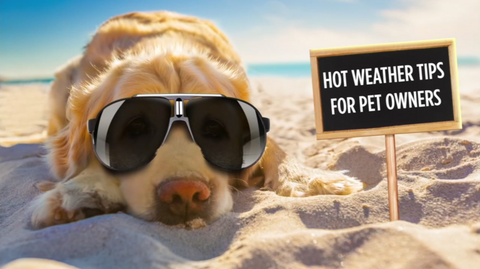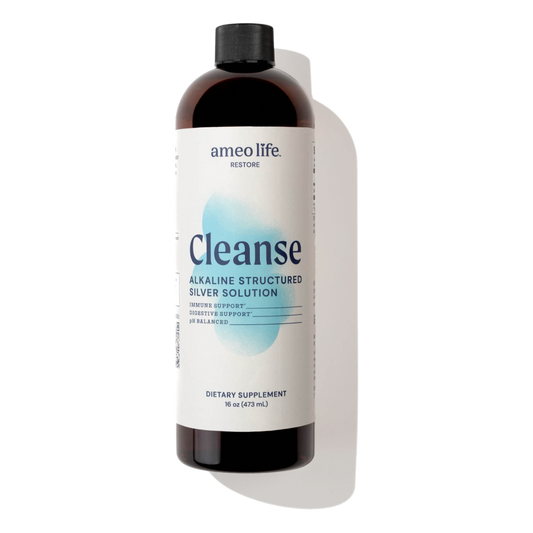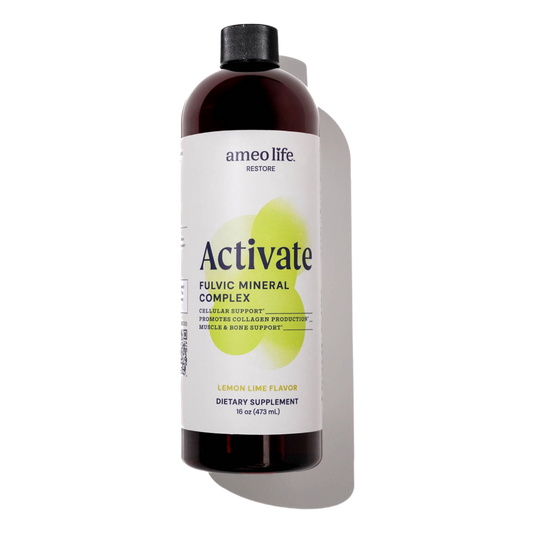Beating The Heat For Our Furry Friends
By Author
|
|Doug Godkin

During the Summer Months Our Furry Friends Need Us To Beat The Heat!

We all love spending the long, sunny days of summer outdoors with ourfurry companions, but being overeager in hot weather can spell danger.
To prevent your pet from overheating, take these simple precautions provided by ASPCA experts to keep them healthy in the heat:
Vet Visits to Stay Healthy in the Heat
- Visit the vet for a spring or early-summer checkup. Make sure your pets get tested for heartworm if they aren’t on year-round preventative medication.
- Pets can get dehydrated quickly, so give them plenty of fresh, clean water when it’s hot or humid outdoors. Make sure your pets have a shady place to get out of the sun, be careful not to over-exercise them, and keep them indoors when it’s extremely hot.
- Know the symptoms of overheating in pets, which include excessive panting or difficulty breathing, increased heart and respiratory rate, drooling, mild weakness, stupor or even collapse. Symptoms can also include seizures, bloody diarrhea and vomit along with an elevated body temperature of over 104 degrees.
Different Types of Pets
- Animals with flat faces, like Pugs and Persian cats, are more susceptible to heat stroke since they cannot pant as effectively. In order to keep these pets healthy in the heat, they should be kept cool in air-conditioned rooms as much as possible. Especially with the elderly, the overweight, and those with heart or lung diseases.
- Never leave your animals alone in a parked vehicle. Not only is this not practicing a healthy in the heat can it lead to fatal heat stroke, it is illegal in several states!
- Do not leave pets unsupervised around a pool—not all dogs are good swimmers. Introduce your pets to water gradually and make sure they wear flotation devices when on boats. Rinse your dog off after swimming to remove chlorine or salt from his fur, and try to keep your dog from drinking pool water, which contains chlorine and other chemicals.
- Open unscreened windows pose a real danger to pets, who often fall out of them. Keep all unscreened windows or doors in your home closed, and make sure adjustable screens are tightly secured.
Gromming To Beat The Heat
- Feel free to trim longer hair on your dog, but never shave your dog: The layers of dogs’ coats protect them from overheating and sunburn. Brushing cats more often than usual can prevent problems caused by excessive heat. Ensure you use sunscreen or insect repellent products on your pets that are specifically labeled for animal use.
- When the temperature is very high, don’t let your dog linger on hot asphalt. Being so close to the ground, your pooch’s body can heat up quickly, and sensitive paw pads can burn. Keep walks during these times to a minimum.
- Commonly used rodenticides and lawn and garden insecticides can be harmful to cats and dogs if ingested, so keep them out of reach. Keep citronella candles, tiki torch products and insect coils of out pets’ reach as well. Call your veterinarian or the ASPCA Animal Poison Control Center at (888) 426-4435 if you suspect your animal has ingested a poisonous substance.
Safety When Attending Events
- Remember that food and drink commonly found at barbeques can be poisonous to pets. Keep alcoholic beverages away from pets, as they can cause intoxication, depression and comas. Similarly, remember that the snacks enjoyed by your human friends should not be a treat for your pet; any change of diet, even for one meal, may give your dog or cat severe digestive ailments. Avoid raisins, grapes, onions, chocolate and products with the sweetener xylitol.
Holiday Safety
- Please leave pets at home when you head out to Fourth of July celebrations, and never use fireworks around pets. Exposure to lit fireworks can potentially result in severe burns or trauma, and even unused fireworks can contain hazardous materials. Many pets are also fearful of loud noises and can become lost, scared or disoriented, so it’s best to keep your little guys safe from the noise in a quiet, sheltered and escape-proof area of your home.
Signs of Heat Stress:
- Anxiousness
- Excessive panting
- Restlessness
- Excessive drooling
- Unsteadiness
- Abnormal gum and tongue color
- Collapse
The American Veterinary Medical Association advises you seek emergency veterinary care if you observe any of these signs.
8 Things you can do to beat the heat in the summer:
- Never, ever leave your dog in the car
- Make sure your dog has unlimited access to fresh water
- Make sure your dog has access to shade when outside
- Take walks during the cooler hours of the day
- When walking, try to stay off of hot surfaces (like asphalt) because it can burn your dog's paws
- If you think it's hot outside, it's even hotter for your pet - make sure your pet has a means of cooling off
- Keep your dog free of external parasites (fleas, ticks) and heartworms - consult your veterinarian about the best product for your pet
- Consider clipping or shaving dogs with long coats (talk to your veterinarian first to see if it's appropriate for your pet), and apply sunscreen to your dog's skin if she or he has a thin coat
Something to further consider is assisting the natural wellness of your pets using pH balanced alkaline Structured Silver.
- Silver Gel on your pets paws can help hydrate the skin
- pH Balanced Alkaline Structured Silver in your pet's water bowl can help purify the water and further support your pet's immune system.
- pH Balanced Alkaline Silver Solution can be used in a mist bottle and sprayed on your pet's fur.
We care about you and your pets. As the summer months continue to warm up we are here to support the natural wellness of your entire family!







